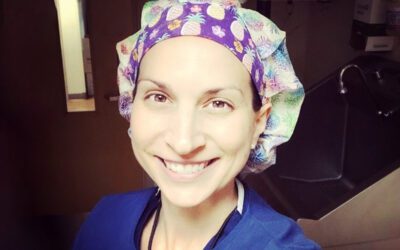June 13, 2022 – Seattle Reproductive Medicine (SRM) today announced the expansion of its Fertility Preservation Program to include ovarian tissue cryopreservation (OTC), an emerging fertility preservation option for girls and young women undergoing medical treatment that can cause infertility. SRM is the first facility in the Pacific Northwest to provide ovarian tissue processing and freezing in addition to other methods of fertility preservation such as egg and embryo freezing.
SRM now provides OTC services to Seattle Children’s patients who are undergoing medical treatment that can cause ovarian failure, including cancer treatments such as chemotherapy, bone marrow transplant and radiation as well as treatments for other conditions such as sickle cell disease.
OTC is the only method of fertility preservation available to girls who have not yet gone through puberty and are too young for the hormonal stimulation needed for egg or embryo freezing. OTC is also an option for women whose need for treatment is too urgent to allow sufficient time for the standard fertility preservation methods of egg and embryo freezing.
“For these patients, ovarian tissue cryopreservation is a vitally important option for preserving their fertility,” said Dr. Lynn Davis, who leads SRM’s Fertility Preservation Program. “SRM is proud to partner with Seattle Children’s, which is one of the only institutions in our region that currently offers this choice to girls and young women who have no other fertility preservation option.”
Ovarian tissue cryopreservation was considered experimental until 2019, when the American Society for Reproductive Medicine determined that OTC can be regarded as established medical procedure. To date, more than 200 babies have been born worldwide to women who have had their ovarian tissue removed, cryopreserved, and later transplanted back into their body.
“Seattle Children’s began offering OTC for fertility preservation in 2020 as part of its comprehensive cancer services,” said Dr. Tyler Ketterl, medical director of Seattle Children’s Adolescent and Young Adult Cancer Program and medical director of its Comprehensive Fertility Care and Preservation Program. “Ovarian tissue cryopreservation is critically important to us because it is the only fertility preservation option for prepubescent girls undergoing curative cancer therapies such as bone marrow transplant that can cause infertility.”
With OTC, a surgeon removes one of a patient’s two ovaries by laparoscopy and the tissue is transported to a facility where it is cryopreserved in liquid nitrogen so it can be used later in life. Once the tissue is transplanted back into the patient’s body, it may restart the patient’s menstrual cycle and estrogen production and may enable the patient to get pregnant, either naturally or through in vitro fertilization (IVF).
“It is important to remember there is no type of fertility treatment that can achieve a positive outcome 100 percent of the time, and that too is the case with ovarian tissue cryopreservation,” said Dr. Davis. “But OTC does offer the possibility of fertility to a very specific group of pediatric patients who would otherwise probably not have that possibility later in life because of the need for treatments that are expected to result in ovarian failure.”
Since 2020, Seattle Children’s has performed OTC procedures for patients ranging in age from one year old to 22 years old. Previously, ovarian tissue needed to be sent to the East Coast for processing and freezing because there was no facility in the region. This was often complicated and costly because of the distance and time difference. In the past two months, SRM was able to locally perform the processing and freezing of ovarian tissue for three patients at Seattle Children’s.
“Working with SRM will be beneficial,” said Dr. Ketterl, “because it is much more convenient and cost-effective to send ovarian tissue to a trusted facility here in Seattle for processing and freezing rather than a facility across the country.”
Faster delivery also allows for greater flexibility in scheduling OTC procedures, which is especially important for patients who urgently need to have their ovarian tissue removed before starting treatment. When tissue is shipped cross-country, procedures cannot be scheduled on certain days or at times when there is a risk the tissue may not be received at its destination within 48 hours. Same-day delivery from Seattle Children’s to SRM reduces scheduling limitations, which improves access to OTC for eligible patients.
“SRM is committed to improving access to fertility preservation options,” said Dr. Davis. “We are pleased to be partnering with Seattle Children’s to improve access to ovarian tissue cryopreservation for patients who can benefit.”




